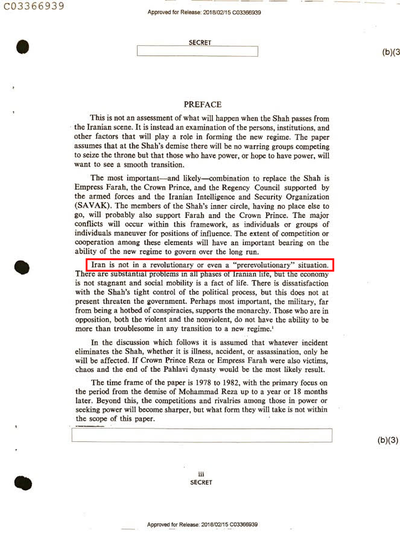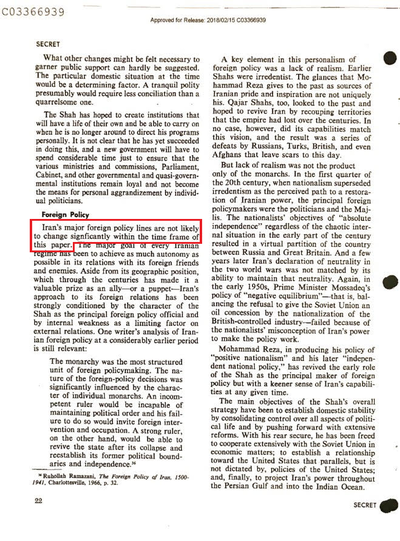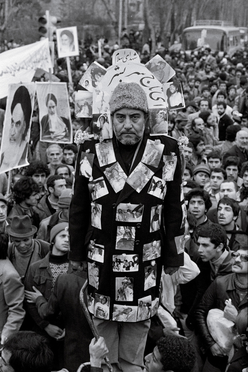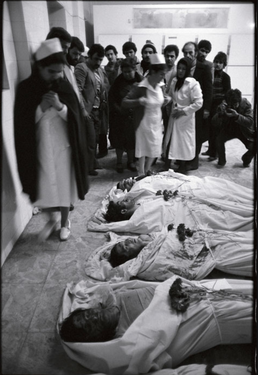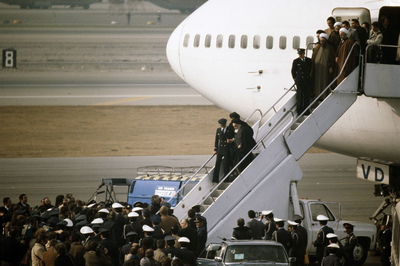December 21, 1978, ©2018 David Burnett/Contact Press Images from “44 Days: Iran and the Remaking of the World”
POLITICAL CONFLICT BETWEEN IRAN AND THE U.S. SPURS THE IRANIAN REVOLUTION
The U.S. destroyed Iranian hopes of democracy by returning the shah to power, inducing widespread political upheaval.
Iranians protested the monarchy and the interference of the American government.
Iranians protested the monarchy and the interference of the American government.
Following the 1953 coup that returned the shah to power, Iranians sought to rebel against his oppressive dictatorship.
When the military coup happened, many of us were so sad and just cried…Mossadegh was trying to introduce democracy in our country, and...through the military coup, the Americans, they actually suffocated the democracy in Iran at the very critical embryonic stage. |
In Washington, there was a failure to understand the vast degree of suppressed hatred that had been caused by our bringing about the collapse of the Mossadegh government. That was Iran’s chance to become democratic. We screwed it up, and we bragged about it. |
The American government did not grasp the people’s rage.
|
"Iran After the Shah," report preface,
Central Intelligence Agency (CIA), August 1978 (Click to enlarge) |
"Iran After the Shah," page 22 of report,
Central Intelligence Agency (CIA), August 1978 (Click to enlarge) |
Unrest grew throughout Iran because of the shah’s development plan, the "White Revolution," and its Western reforms.
Iranians resented the shah’s close relationship with the archetypal Western nation of America.
Iranians resented the shah’s close relationship with the archetypal Western nation of America.
|
|
...during a speech [Carter] delivered at the shah’s New Year’s Eve dinner party...he stated, 'Iran under the leadership of the Shah is an island of stability in one of the more troubled areas of the world. This is a great tribute to you, Your Majesty, and to your leadership, and to the respect, and admiration and love which your people give to you.' While Carter’s well-intentioned speech might have been customary to reiterate strong relations between the two countries, it might also have been viewed as a manifestation of his ignorance about Iranian dissatisfaction with the shah. |
|
In January 1978, anti-shah protests culminated in the “Iranian Revolution.” Iranians demonstrated in the streets and were terrorized by the shah’s secret police, the Savak.
|
The disdain throughout Iran led to the shah’s abdication on January 16, 1979. On February 1, 1979, Ruhollah Khomeini,
an enemy of the shah, returned to Iran after fourteen years of exile, becoming the ayatollah.
an enemy of the shah, returned to Iran after fourteen years of exile, becoming the ayatollah.
February 1, 1979, AP Archive
One thing the revolution had taught the students [in Iran] was the folly of waiting for something to happen. They had seen the fruits of bold, direct action.
-Mark Bowden in Guests of the Ayatollah
